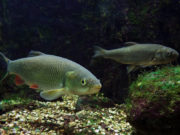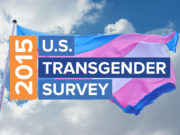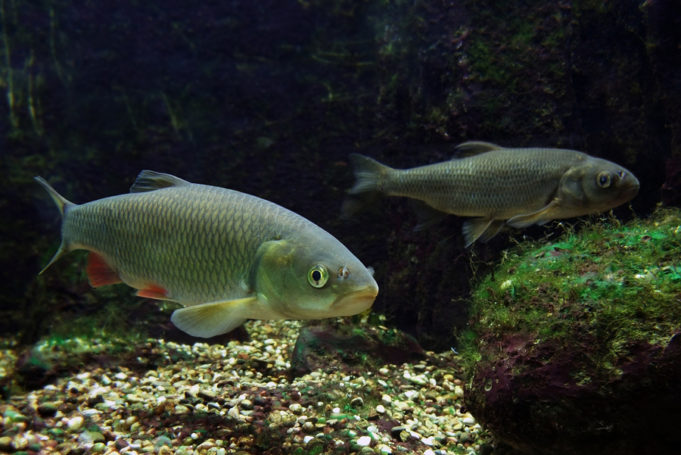A U.K. study of freshwater fish has found a fifth of the male fish are now showing feminine traits due to oestrogen exposure.
Scientists are blaming chemicals from birth control pills and makeup being flushed down drains as some of the causes. Traits being found in male fish include the production of eggs, a reduced sperm count, and less aggressive behavior. More than 200 chemicals from sewage plants were also identified as having oestrogen-like effects on male freshwater fish that were tested at 50 different sites.
Professor Charles Tyler, of the University of Exeter, will be presenting his findings in a key-note lecture at the 50th Anniversary Symposium of the Fisheries Society in the British Isles this week, which is being held at Exeter. He intends to explain that the offspring of such “transgender” or “intersex” fish will likely be more sensitive to the effects of these chemicals if they continue to be exposed.

“We are showing that some of these chemicals can have much wider health effects on fish that we expected,” Tyler told the Telegraph in an interview. “Other research has shown that many other chemicals that are discharged through sewage treatment works can affect fish, including antidepressant drugs that reduce the natural shyness of some fish species, including the way they react to predators.”
Dr. Steve Simpson, who has organized the symposium, said the talks will give “fish biologists from around the world a chance to exchange ideas and discuss how to protect dwindling fish populations in rapidly changing seas and rivers, before it is too late.”
There has been ongoing debate within the scientific community as to whether birth control pills are contributing to estrogen levels in water supplies. A 2010, study published on WebMD found soy and dairy products and animal waste contribute far more estrogen to the water supply than do oral contraceptive pills. A recent Swedish study published in Science Daily found that birth control pills could have a profound effect on aquatic organisms.
































